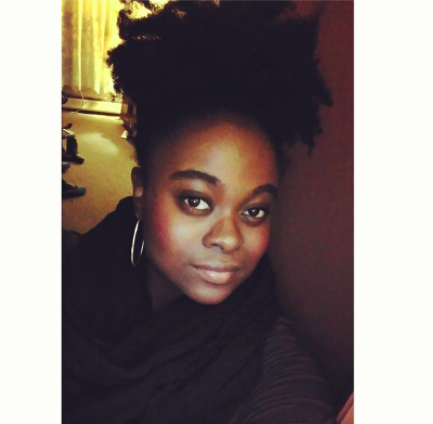How Clinton could lose the black vote
April 13, 2016
As a Black woman, I forgive Sen. Hillary Clinton and Sen. Bernie Sanders for supporting the 1994 crime bill that gave many Black and Latino Americans life sentences for minor crimes. They have both expressed sympathy and shared ideas on how to fix mass incarceration, and I believe that it was an honest mistake.
In addition, I forgive Mrs. Clinton for calling men of color who are a part of gangs ‘super-predators’ in 1996. However, what I don’t respect is the level of desperation and oddity of Hillary’s motives in order to receive the Black vote.
For the Democratic candidates in this year’s presidential race, the Black vote is important because of the plethora of issues in the United States affecting African-American communities.
In 2015, more than 900 Americans were shot and killed by law enforcement, and 40 percent of the victims were Black men, according to The Washington Post. Mass incarceration, poverty, unemployment and education are what African-Americans want to see change, and most expect Clinton and Sanders to continue to expand current President Barack Obama’s plans to resolve these issues.
However, with a Republican candidate like Donald Trump, who promotes hate and discrimination toward minorities, it is very scary to see how people, specifically white Americans, support the bigotry and ignorance of a man who has a good chance of becoming president.
With that being said, Sanders has been in the news multiple times speaking about racism and mass incarceration, and has pictures from his early twenties of him marching with civil rights leaders like Dr. Martin Luther King, Jr. Some African-Americans look to him as a sign of hope and liberation because he seems to understand these issues and refuses to ignore them. However, some Americans in general feel like he is over promising with no clear explanation to solve these issues; Clinton agrees.
During her time cruising through New York City’s metro system and playing dominoes with residents before the upcoming New York primary on April 19, Clinton spent some time talking to Power 105’s hip hop radio show “The Breakfast Club,” who also interviewed Sanders in February.
One co-host, Angela Yee, asked Clinton what item she always has in her bag, and Clinton said without a pause, “hot sauce.” This response received backlash since it connects with Beyoncé’s Black power anthem “Formation,” with one of the lyrics being “I keep hot sauce in my bag, swag.”
Another co-host, Charlamagne Tha God, commented, “Now listen, I want you to know that people are going to see this and say, ‘She’s pandering to Black people,’” and Clinton responds “Is it working?” No, Sen. Clinton, it’s not working.
Personally, I did not take offense to Clinton learning how to “dougie” on the Ellen show or mispronouncing Beyoncé’s name in one of her speeches, or even this hot sauce comment because it could be true. In 2012, she told the Condé Nast Traveler that she kept 100 bottles of Tabasco sauce in the White House as Secretary of State.
What I take offense to is her acknowledgment of possibly pandering to Black people by her statement “Is it working?” Up to that question, the interview was great, because she really expressed her feelings about negative things that she said in the past and also her views on racism and the prison systems. Clinton’s only way to lose the Black vote is trying to connect with African-Americans in a humorous way.
Former President Bill Clinton was nicknamed America’s First Black President by Toni Morrison, which I will never understand, and now Black Americans will see that his wife is not a saxophone-playing southern girl that African-Americans feel that they can connect to.
Sanders is proven to have Black supporters because of his positive words, his protesting for equal rights in the 1960s, and his political actions. If he does hip-hop dances on a television show or performs rap lyrics that would hurt him tremendously as well.
The best way to get the Black vote is standing by your own truth, expressing honest feelings about issues Black Americans care about, and not looking like a fool by using Black stereotypes or dance moves in order to connect with them.






